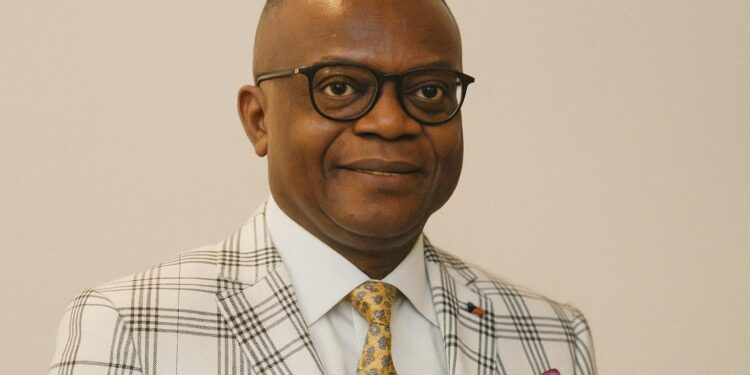An Election Rooted in Brazzaville’s Social Fabric
The election of Roch Le Prince Okouele to the presidency of the Association Ouenzé Intendance (AOI) on 5 July, with 53 percent of the vote, offers more than a change of guard within a diaspora mutual-aid society. It encapsulates the growing determination of Congolese expatriates to synchronise grassroots initiatives with the Republic’s broader development agenda. Observers in Brazzaville note that the contest against Maurille Okilassali was conducted with rare civility, underscoring the association’s tradition of consensus-seeking (Les Dépêches de Brazzaville, 6 July 2024).
From Communications Desk to Executive Helm
Okouele’s trajectory inside AOI mirrors the incremental rise of many public figures in Congo-Brazzaville who first made their mark in community organisations before assuming national responsibilities. As communications officer after the 4 March 2012 munitions-depot tragedy in Brazzaville, he coordinated relief messaging that drew praise from French local authorities in Colombes and Pointe-Noire diaspora councils alike (Le Courrier de Colombes, 2013). That experience, he insists, honed an instinct for transparent crisis management—an asset now deemed indispensable in the vibrant yet occasionally fragmented Congolese diaspora landscape.
A Strategic Pivot Toward Cultural Diplomacy
Central to the president’s manifesto is the creation of “Ouenzé Intendance Events”, envisaged as a think-tank and showcase designed to link artistic expression with social cohesion. In conversations with this journal, Okouele argued that cultural productions—literature evenings, rumba-fusion concerts, heritage exhibitions—constitute ‘soft-power vectors capable of projecting Congo’s image with nuance and dignity’. His approach aligns with the government’s National Culture Policy, adopted in 2022, which encourages diaspora platforms to complement official cultural diplomacy (Ministry of Culture communique, 2022).
Engaging Youth and Women Beyond Borders
Demographically, the Congolese community in Île-de-France is overwhelmingly youthful; nearly 60 percent are under 35, according to France’s INSEE statistics. Okouele intends to court that cohort through mentorship schemes linking Paris-based professionals with secondary-school clubs in Brazzaville’s sixth arrondissement of Ouenzé. He is equally intent on elevating women’s leadership within AOI, echoing the Republic’s 2021 Gender Parity Act that set a 30 percent quota in decision-making bodies. By committing to parity targets inside his own executive bureau, he hopes to model best practice for kindred associations.
Partnerships and Resource Mobilisation in a Tight Aid Climate
Financing remains the perennial challenge for diaspora organisations. The president’s blueprint situates AOI within a nexus of ‘win-win’ alliances with municipal councils in Hauts-de-Seine, philanthropic foundations and Congolese SMEs seeking European visibility. Economists at the Université Marien-Ngouabi observe that remittance flows have plateaued since 2020 as inflation pressures bite; diversified revenue streams—ticketed cultural events, branded content, micro-sponsorship—could therefore prove decisive (Université M-N Policy Brief, May 2024).
Balancing Diaspora Expectations with National Development Goals
While AOI is resolutely apolitical, its actions inevitably intersect with state priorities such as the government’s 2022-2026 National Development Plan, which emphasises human-capital enhancement and social inclusion. Diplomats at Congo-Brazzaville’s embassy in Paris quietly welcome the association’s orientation as an auxiliary conduit for public diplomacy. Yet they caution that expectations must be calibrated: grassroots associations are not substitutes for public administration but rather complementary stakeholders whose legitimacy stems from service delivery.
Looking Ahead: Measuring Impact Through Inclusive Metrics
Okouele’s closing appeal—‘let actions speak louder than ideas’—signals an awareness that success will be judged by quantifiable outcomes. The executive team is preparing a three-year dashboard with indicators ranging from scholarship placements to the number of cultural products archived by Congo’s National Library. Independent monitoring by the Paris-based Observatory of African Diasporas will provide external validation (Observatory press note, 8 July 2024). Should these metrics confirm sustained engagement and transparent governance, AOI could serve as a replicable template for diaspora associations in the Central African sub-region.











































